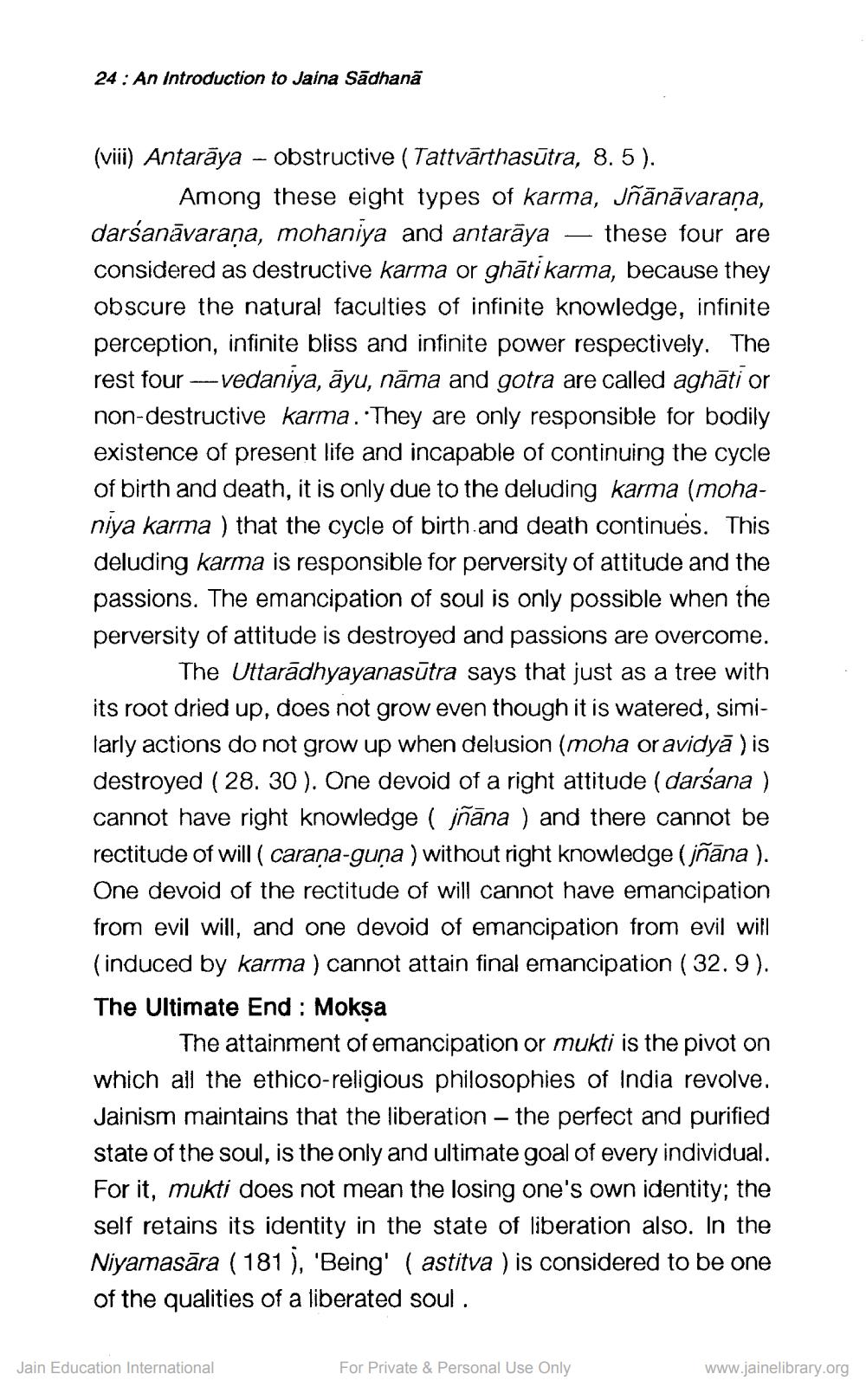________________
24 : An Introduction to Jaina Sadhanā
(viii) Antarāya - obstructive ( Tattvārthasūtra, 8. 5).
Among these eight types of karma, Jñānāvarana, darśanāvaraṇa, mohaniya and antarāya — these four are considered as destructive karma or ghāti karma, because they obscure the natural faculties of infinite knowledge, infinite perception, infinite bliss and infinite power respectively. The rest four ---vedaniya, āyu, nāma and gotra are called aghāti or non-destructive karma. They are only responsible for bodily existence of present life and incapable of continuing the cycle of birth and death, it is only due to the deluding karma (mohaniya karma ) that the cycle of birth and death continues. This deluding karma is responsible for perversity of attitude and the passions. The emancipation of soul is only possible when the perversity of attitude is destroyed and passions are overcome.
The Uttarādhyayanasūtra says that just as a tree with its root dried up, does not grow even though it is watered, similarly actions do not grow up when delusion (moha or avidyā) is destroyed ( 28. 30). One devoid of a right attitude (darśana ) cannot have right knowledge ( jñāna ) and there cannot be rectitude of will ( caraṇa-guņa ) without right knowledge (jñāna). One devoid of the rectitude of will cannot have emancipation from evil will, and one devoid of emancipation from evil will (induced by karma ) cannot attain final emancipation ( 32. 9). The Ultimate End : Moksa
The attainment of emancipation or mukti is the pivot on which all the ethico-religious philosophies of India revolve. Jainism maintains that the liberation – the perfect and purified state of the soul, is the only and ultimate goal of every individual. For it, mukti does not mean the losing one's own identity; the self retains its identity in the state of liberation also. In the Niyamasāra ( 181 ), 'Being' ( astitva ) is considered to be one of the qualities of a liberated soul.
Jain Education International
For Private & Personal Use Only
www.jainelibrary.org




